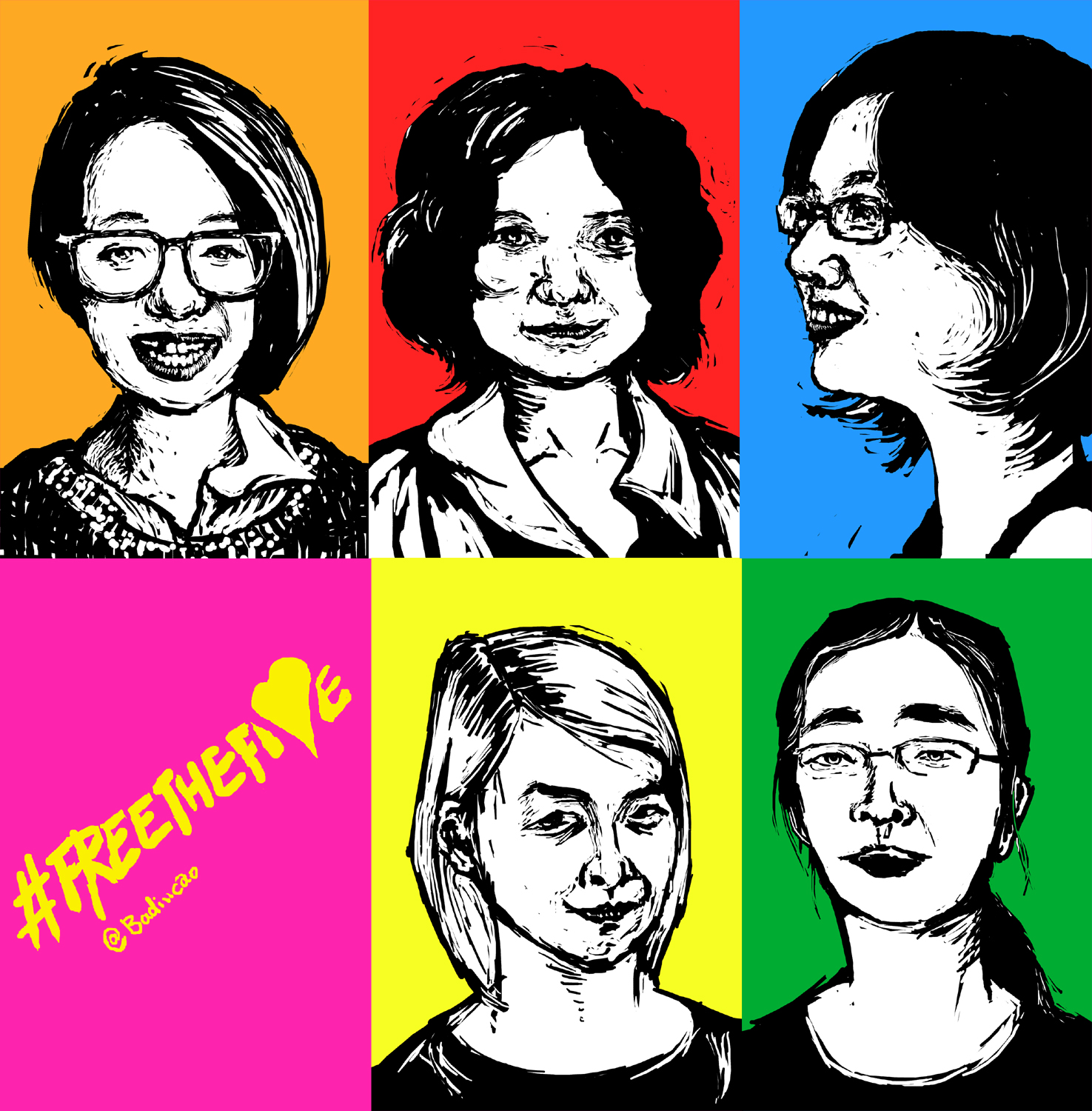Feminist and LGBT activist Li Tingting (also known as Li Maizi) was detained for 37 days in March 2015 together with four other activists on suspicion of “picking quarrels and provoking trouble” for planning public education campaigns against sexual harassment. Their case generated tremendous international support and became a rallying point for women’s rights activists in China. Since their release, the women have been subjected to heavy surveillance and harassed by authorities. But recently some have been allowed to travel, including Li, who is currently in the U.S. She tells Asia Society’s Eric Fish that she believes a combination of lack of evidence, and international and domestic pressure, may have enabled authorities to ease up on her restrictions and allow her to travel.
Li also met with Cao Yaxue, the editor of China Change, to discuss the details of her detention and the current status of feminist and LGBT activism—and civic society—in China today:
YC: Are you saying then that the civil advocacy work right now is still being done by NGOs?
Li Tingting: Right. Work done by civil society has already decriminalized and depathologized homosexuality, but they haven’t managed to normalize it. The wider public and the government are still prejudiced against homosexuality, like it’s something dishonorable. The problem is that they simply have no interest in actually understanding this group of people. But because LGBT groups have started to spring up in recent years, the police need to monitor them, and they also need to understand them. The reason this issue is still fairly safe is in part because the authorities don’t really want to touch it. So the government’s lack of advocacy and support also protects this population, allowing them to continue their advocacy in the current climate.
[…] YC: When I meet you, the impression I get from you is that you’re really free — your facial expressions and gestures, everything about you seems to proclaim: I’m free. And yet this totalitarian system every day presents you with another message: I’m controlling you, you’re not free. You make me think of myself when I was in my 20s. At the time I was still living in China, and every single day I felt a fundamental, intrinsic sense of freedom clashing sharply against the external oppressiveness. But at that time there was no internet, no so-called civil society, so disgust and helplessness became a state of life. But I had never thought, in 2016, the term “freedom” still remains a remote, dangerous expression. You’ve been jailed, and you’re gay — tell us about your existential state.
Li Tingting: I think that the pressure is inescapable — it affects your personal relationships, and it affects your daily life. So we’ve all had to become superhuman: we have to stand against the pressure, and also work while under it. The government’s invisible tentacles are reminding you every single moment: “I’m watching you.” I’ve always been a rebellious person, incompatible with a mainstream lifestyle. Other people have said I’m “radical.” But once you choose your way of life, you have to walk the path to the end. So, freedom has its costs. Every way of life has its costs, it’s just a matter of what costs you choose. [Source]
Li is scheduled to participate in a discussion with fellow activist Di Wang and moderator Barbara Demick at Asia Society in New York titled “ChinaFile Presents: Feminist and LGBT Activism in China” on Thursday July 28. The event will be live-broadcast online. Read more about Li and her fellow “Feminist Five” activists, via CDT.








